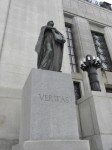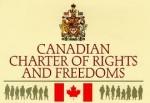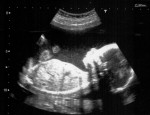On the August 23 episode of CBC’s “The House,” Jacques Poitras interviewed New Brunswick’s Liberal Leader Brian Gallant about the abortion funding controversy in that province and how this controversy may affect the outcome of New Brunswick’s election in September.1
Speaking about New Brunswick’s “two-doctor rule” which requires that, in order for an abortion to be publicly funded, “two medical practitioners certify in writing that the abortion was medically required,” Mr. Gallant said:
“I think it’s a barrier. I’m convinced that a review would confirm that and will confirm that, and then we will have to make sure that we repeal it. We make sure that we have questions answered on the other facets that could be barriers to access, and we ensure that we are adhering to the Supreme Court of Canada’s ruling, the constitution, of course, women’s rights.”
CBC’s Jacques Poitras asks:
“….so you’re calling for a review but anticipating that it would lead to a repeal eventually.”
Brian Gallant responds:
“I am anticipating that, yes.”
Mr. Gallant may want to repeal the two-doctor rule for political reasons, but there is nothing in the Canadian Charter and nothing in the Supreme Court’s 1988 Morgentaler decision that requires it.
First of all, the Supreme Court in Morgentaler did not deal with the abortion funding issue at all. Rather, it dealt with abortion only in the criminal law context.
Secondly, even in the context of the criminal law, the Supreme Court did not find that a two-doctor rule was unconstitutional. In fact, four of the seven Justices (McIntyre, La Forest, Beetz and Estey) felt that a second opinion was justified in order to protect the state interest in the fetus. Beetz said:
“I do not believe it to be unreasonable to seek independent medical confirmation of the threat to the woman’s life or health when such an important and distinct interest hangs in the balance. I note with interest that in a number of foreign jurisdictions, laws which decriminalize abortions require an opinion as to the state of health of the woman independent from the opinion of her own physician.” (R v Morgentaler [1988] at page 112)
And finally, as discussed here in detail, it is up to each province to determine what medical procedures will be publicly funded, i.e. what procedures are deemed to be “medically necessary.” New Brunswick, through regulation 84-20 of the Medical Services Payment Act, stipulates that a particular abortion is “medically necessary” (and thus will be paid for by Medicare) only if, among other things, two doctors certify in writing that it is.2
If after the review Mr. Gallant has promised, he still wants to repeal the abortion restrictions in 84-20, then at least his motives will be clear—it will be because he wants to. In which case it is only fair to New Brunswickers that he tell them that, and not lead them to believe that the Supreme Court or the Charter requires it.
–
References:
- The piece on New Brunswick begins approximately 41 minutes into the podcast. ↩
- Schedule 2 of Regulation 84-20 deems abortion not to be an entitled service “unless the abortion is performed by a specialist in the field of obstetrics and gynaecology in a hospital facility approved by the jurisdiction in which the hospital facility is located and two medical practitioners certify in writing that the abortion was medically required” ↩




Speak Your Mind